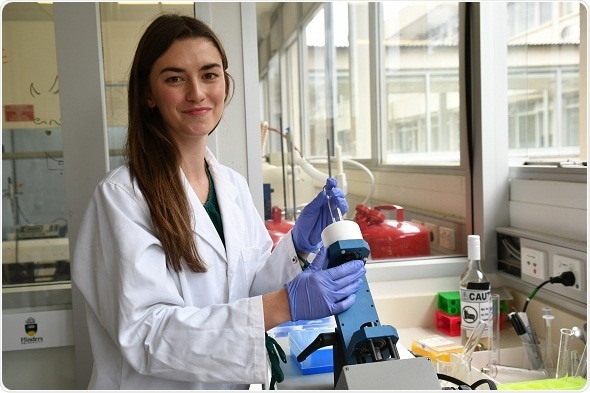DNA in preserved museum specimens can allow scientists to explore the history of species and humanities impact on the ecosystem, but samples are typically preserved in formaldehyde which can damage DNA and make it very difficult to recover.

Researchers have used a vortex fluidic device (VFD) to speed up DNA extraction from an American lobster preserved in formaldehyde - with the results providing a roadmap for exploring DNA from millions of valuable and even extinct species in museums worldwide.
Flinders Ph.D. candidate Jessica Phillips says processing the preserved tissue from museum specimens in the VFD breaks apart proteins, releasing DNA which offers important historical genetic information.
DNA extraction is achieved by processing the preserved tissue in an enzyme solution in the VFD. This enzyme breaks apart the proteins, releasing the DNA which can be analyzed. By using the VFD we are able to accelerate this process from days to hours.
For 150 years these samples have been preserved in formaldehyde which can damage the DNA and also make DNA difficult to recover. We used mechanical energy in a vortex fluidic device (VFD) to accelerate the extraction by processing the preserved tissue in an enzyme solution in the VFD."
Jessica Phillips, Ph.D. candidate, Flinders University
This work is a collaboration between University of California, Irvine (UCI), The Department of Organismic and Evolutionary Biology at Harvard University, and Flinders University.
Researchers say the results provide a roadmap for exploring DNA from millions of historical and even extinct species in museums worldwide.